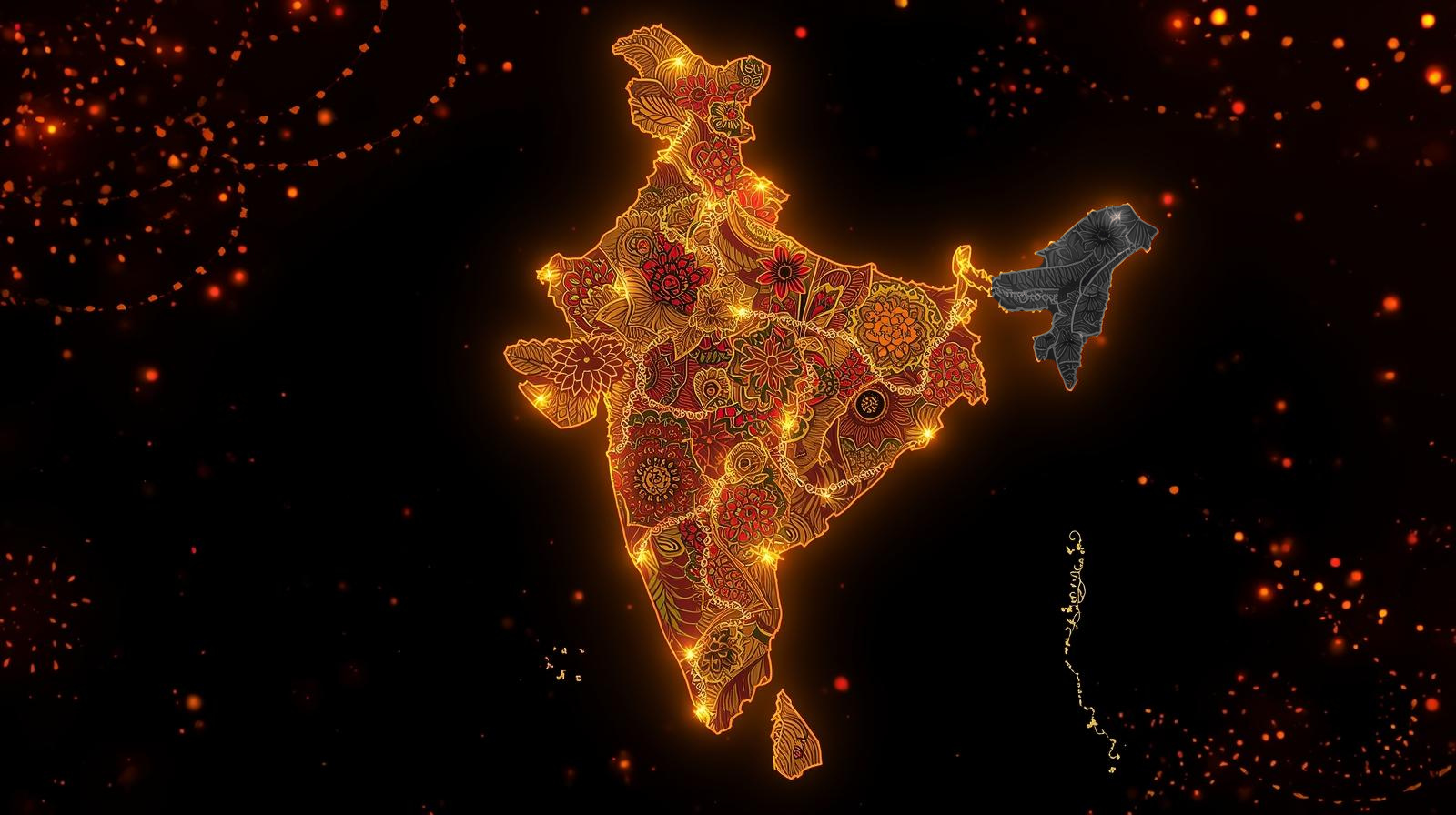Human lives and societal existence have always been a two-pronged struggle: a struggle to dismantle and a struggle to create. To occlude the wrongs and shower the newer dawn of hope, unity, harmony, and cohesion.
It was such a struggle that embodies our past, our present and our future, the lifeworld of our Bharat. Reminiscing the pages of the past, of exactly a century ago, a struggle of such dual objective was launched, to dismantle the pride of British hatred and to stitch the fabric of Bharatiya brotherhood and unity. While the Britishers were waving the wrath of their divide and rule in the then Undivided Bengal, it was the toiling masses who wore the fabric of love, duty, and honour. It was the beginning of a traditional practice that would entail a transgenerationality around the entire nation. It was the celebration of the Raksha Bandhan, where the sisters would tie the fabric around their brothers' arms, exchanging love, showering blessings, and taking the pledge to stand by each other.
With such a rich cultural-political heritage that defines Bharat, it is imperative for us to uphold the duty of remembrance, to keep alive in passion and in practice what we hold so dearly, what we are made up of. While the entire nation went on to celebrate this auspicious day on the 9th of August and then to fill one's chest with pride on the day of our independence, there remains a dark spot that has been obscured from this entire discourse of festivity and celebration. While we were tying our hands with the beautifully crafted fabrics, taking the blessing of our sisters, pledging to honour their lives and to have their back, it was the seven sisters in our very own country that were burning. Political instability, violent armed clashes, tremendous economic degradation, natural calamities, violence-led high-level cross-border migration, ethnic clashes, and foreign infiltration decorated the week of Raksha Bandhan for our seven sisters. Landslides in Arunachal Pradesh in the month of May cost the lives of nine people on the first day of reporting, followed by heavy flash floods in Assam, hitting 17 districts, blocking off connectivity, causing food shortages and inflationary pressures. Mizoram, too, has been grappling with the issues of border infiltration due to violence in Myanmar, and deadly landslides, causing water shortages in a number of villages, with the cuts in central funding for various developmental programs forming the cherry on top of the cake. Similar natural disasters have constrained the lives in Nagaland, Tripura, and Meghalaya during this monsoon, with the NH-44 closed for days, death tolls rising and severe crop losses, affecting farmers and the commoners.
Travelling a few miles north, where the ethnic conflict has rendered lives in the most dehumanised form, the case for Manipur perhaps constitutes the highest point of our failure as a nation. It has been more than two years, with two sets of Raksha Bandhan passing by, that one of our seven sisters has been deeply affected by violence, political instability, death, and the destruction of innumerable lives. There has been a deep-seated “Otherization” between the two communities that has surpassed and seeped not only into the lives of the two communities but also into the administrative apparatus of the state and its institutions. This institutionalization of the conflict has been met with only periodical assurances over the media, and ultimately the proclamation of the President’s rule in February 2025, extended further six months, effective from 13th August 2025.
Amidst such a situation, at the hour of Independence, it is not a clarion to do away with the festivities. It is, in turn, a clarion to participate in the very struggle that forms the pillars of our existence, our history and our present. It is our will to participate in the struggles of establishing our existence that defines the nature of our festivities, and in turn, our struggles are equivalent to the most precious of celebrations. The pages of our past fill us with the struggle to establish an Independent, sovereign country rooted deeply in this cultural and political ecosystem. This calls us to revive this core ethic of holding our heads high and fearless in times of despair and to not be indifferent when times are tough, but to sing the lines of Pancham da’s song, “Tum jo pakad lo hath mera, toh duniya badal sakta hu main”. Thus, at the hour of the 79th year of our independence, let us dive into the cultural roots of our being, forge in unity and harmony, and participate in the two-pronged struggle. Only this time, it’s the struggle of our memory against forgetting, to keep alive the plight of our seven sisters and the lives that embody it.
About the Author:
Agniva Ray is a PhD scholar at Jawaharlal Nehru University, pursuing his research in the field of Indian political economy, state institutions and issues of labour.











